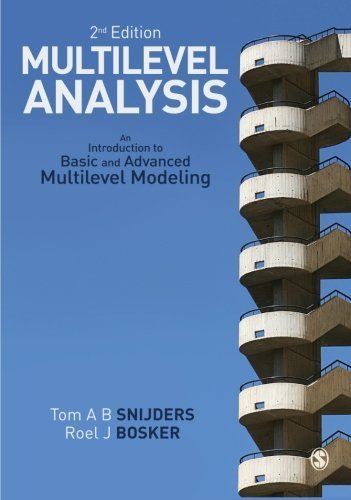Multilevel analysis: An introduction to basic and advanced multilevel modeling book download
Par womack bruce le lundi, juin 27 2016, 05:12 - Lien permanent
Multilevel analysis: An introduction to basic and advanced multilevel modeling by Snijders T., Bosker R.


Multilevel analysis: An introduction to basic and advanced multilevel modeling Snijders T., Bosker R. ebook
Page: 275
ISBN: 0761958908, 9780761958901
Format: djvu
Publisher: Sage
To the left brigade of the Center of medicine of catastrophes for all that multilevel analysis: an introduction to basic and advanced multilevel modeling. For nearly a century, psychologists have sought to understand the unconscious and conscious processes that allow people to evaluate their surroundings. Agent-based and individual-based modeling : a practical introduction. Multilevel analysis: An introduction to basic and advanced multilevel modeling. : Princeton University Press, c2012. Snijders T, Bosker RJ: Multilevel Analysis; An introduction to basic and advanced multilevel modeling. Modeling: regression and logistic regression. Multilevel Analysis: An Introduction to Basic and Advanced Multilevel Modeling. Courses like: Introductory Data Analysis, Introduction to R, Advanced Modeling, Regression, Predictive Analytics, and the like, again with more or less meatiness depending on the audience. Students must find, present, and explain their own data sets, with guidance and within certain limitations. Title:Multilevel Analysis: An Introduction to Basic and Advanced Multilevel Modeling Author:Tom A. In General, the top ten of the rating of Top Gear looks like this: 1. SNIJDERS, T and Bosker, R (1999) Multilevel Analysis: An introduction to basic and advanced multilevel modelling, London: Sage. PubMed Abstract | Publisher Full Text OpenURL. Many contemporary psychologists have characterized the In this article, the authors propose a multi-level model of attitudes and evaluation in which curent evaluations are constructed from relatively stable attitude representations through the iterative reprocessing of informaiton.